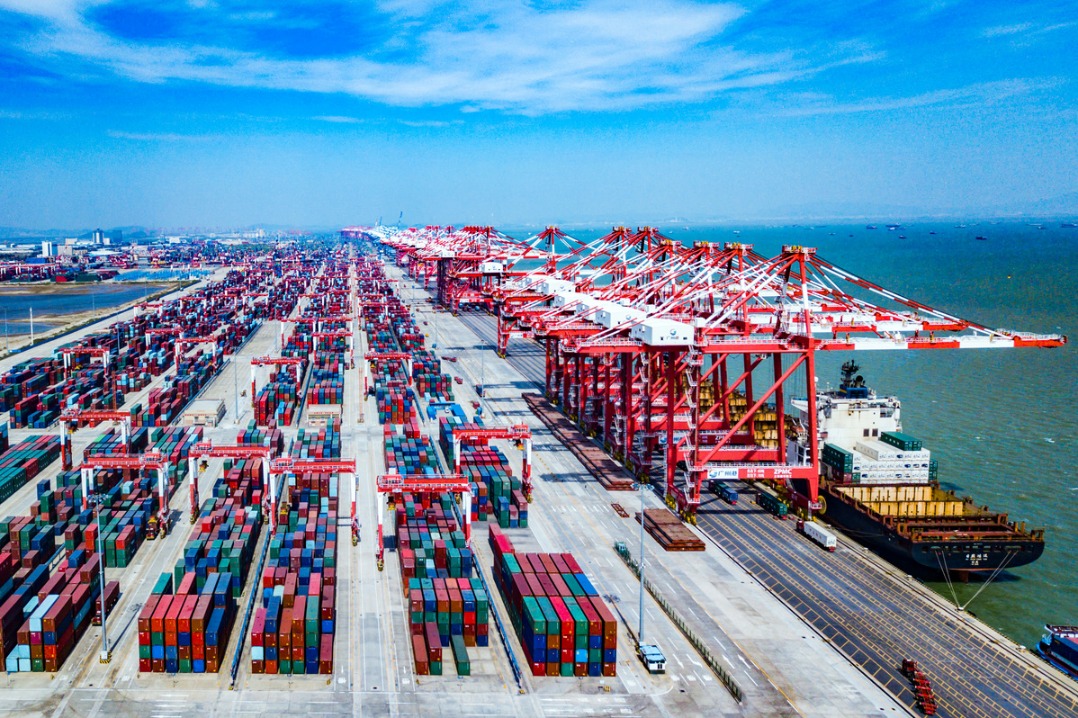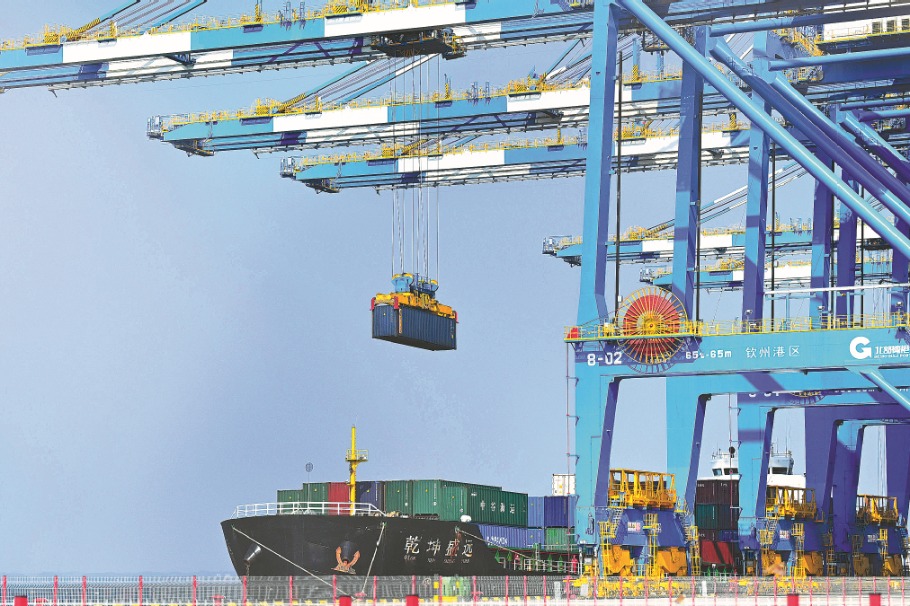Innovating financial assistance
By ZHU WUXIANG/ZHANG PING | China Daily | Updated: 2020-03-10 07:48

Government can take advantage of the resources of e-commerce platforms to carry out targeted and efficient financial support policies for small businesses
The novel coronavirus outbreak has dealt a heavy blow to the real economy and consumption in China. Surveys suggest micro, small and medium-sized enterprises are struggling to keep afloat. The Chinese authorities have recently ramped up efforts to support MSMEs by rolling out a variety of preferential policies. With government agencies and financial institutions resuming operations, the strain on MSMEs is expected to be eased thanks to more tax and fee reductions or exemptions, extended payment deadlines and subsidies.
But as the inflection point of the epidemic is still to come, many uncertainties remain in the reopening of businesses and production, which means enterprises need more time and funds to keep afloat and resume operations. So in addition to the above-mentioned preferential policies, more financial support is needed for MSMEs.
The epidemic has caused substantial losses to a majority of MSMEs, and weakened their investment capacity and solvency. They require financial assistance from outside to get them back on their feet. The findings of a survey covering 542 enterprises in cities, including Beijing and Shenzhen in Guangdong province, found that 75 percent of the enterprises have not seen their financial pressure relieved, 96 percent of the surveyed companies still suffered cash flow pressure in March, and 44 percent of businesses hope to receive further liquidity support.
The financial support for MSMEs comes mainly in the form of preferential loans granted by fixed-income financing institutions such as banks, which require hard assets as collateral. The country's financial regulator has introduced a string of guiding preferential policies, including bolstering credit supply, lowering interest rates and extending the payment deadlines for loans. Local governments have also taken measures to extend more credit support for MSMEs.
However, these policies are mainly designed for enterprises meeting the credit standards set by banks, and they do not benefit most MSMEs. Surveys show that 82 percent of MSMEs have not acquired preferential loans. Most of these enterprises could not get credit support from banks under normal circumstances, let alone during the outbreak.
For a long time, the government has been serving real economy enterprises through commercial banks. But most of the banks know little about the micro, small and medium-sized businesses, and are not able to reach to them. The past decade has witnessed a significant change in China's industrial structure, with the emergence of many leading internet companies, e-commerce platforms that serve the MSMEs, and online fiscal and financial service agencies. These platforms can reach MSMEs, have access to their business and transaction data, and are able to evaluate and influence their business.
Therefore, the government can take advantage of the resources of these platforms to carry out targeted and efficient financial bailout policies for MSMEs.
A multi-tiered stock market has a high requirement for the growth potential and capacity of enterprises. The fixed-income financing system has high requirements for mortgages and the collateral of enterprises, and thus is not suitable for MSMEs. We suggest the building of a multi-level bailout fund for these companies and the establishment of an equity financing system for them. The equity investment fund for MSMEs can be set up in the public-private partnership (PPP) model, combining the forces of government, leading enterprises, e-commerce platforms and other commercial capital.
For example, local bailout funds for MSMEs can be financed by local governments, through issuance of long-term bonds in economically developed areas, or through cooperation with industrial leaders or e-commerce platforms.
Based on enterprises' tax payments, social insurance and housing provident contributions, and business and transaction data, one-off payments or installments can be given to enterprises according to their actual needs and business abilities. For example, for asset-light MSMEs in the technology, culture, tourism or catering industries, their average annual tax revenues during the past three years should be set as the benchmark for assessing their business capacity; for technology companies that enjoy tax breaks, their social insurance and housing provident contributions should be used as the benchmark. Also, the credit record of stakeholders of the supported companies should be monitored.
Special national bonds can be issued to set up a bailout fund for MSMEs. The fund can be used to compensate the losses of banks incurred due to the defaults of MSMEs, and develop insurance products for MSMEs, to lower the bad-loan ratio of formal financial institutions, support banks and insurance companies and increase the leverage of the government bailout fund.
On top of that, the resources of leading enterprises in industrial chains and e-commerce platforms should be tapped into to better manage the bailout fund for MSMEs.
The bailout fund of MSMEs can be managed as with the National Innovation Fund. It can be entrusted to leading industrial enterprises and e-commerce platforms which boast a wide coverage of MSEMs, and strong risk control capacities. Eligibility standards and assessment indexes should be set for applicants. Those passing the assessment could be allowed to manage the bailout fund.
The entrusted institutions earn service fees, rather than interest margin, by providing financing services to MSMEs through their own big data risk control system. The bailout fund should be allowed with bad-loan ratios higher than that for commercial banks. Their performance of the businesses receiving loans should be audited by auditing agencies, with indexes such as the employment rate of benefited enterprises, tax revenues and social insurance and housing provident contributions.
Zhu Wuxiang is a professor with the School of Economics and Management at Tsinghua University. Zhang Ping is a researcher with the Institute of Economics at the Chinese Academy of Social Sciences. The authors contributed this article to China Watch, a think tank powered by China Daily. The views do not necessarily reflect those of China Daily.
























